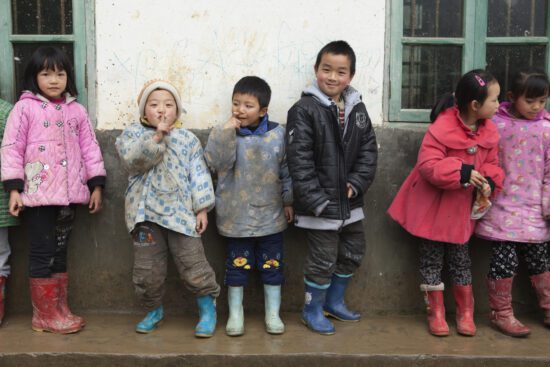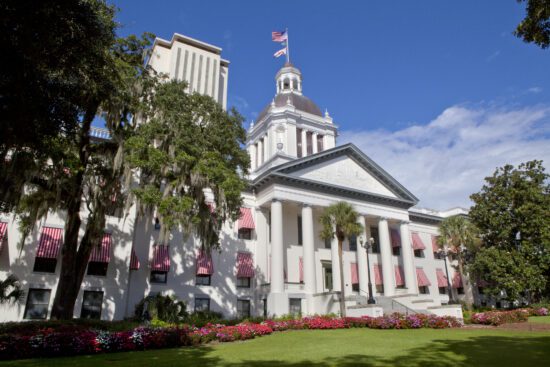To adopt is to invite a season of waiting and uncertainty into your life. Pregnancies and births have many uncertainties, but rarely extend beyond nine months. Adoption can take years. As everyone faces a season of uncertainty and waiting at present due to COVID-19, adoptive families, who were already experiencing ups and downs, delights and dashed hopes, face even more uncertainty and extended waiting.
Many of us can be frustrated at the lack of toilet paper or preferred groceries accessible to us. While we grow weary of being home and long to get back to our routine, what adoptive families and the children waiting to be adopted experience is incomparable. While we all face COVID-19 together, not all things are the same level of hard. As I spoke with adoptive families, one shared that as they have opened up with others in this season about their hardship, many have responded, “It’s hard for us to be home, or to not be able to do x, y, z, or to have our travel plans cancelled too.” These friends likely were trying to communicate solidarity, but an American’s inability to have conveniences is not the same kind or quality of hardship as a child without any advocate. Speaking with adoptive families in this season has reminded me of the heart of our God for the fatherless, vulnerable, and to bring justice to the oppressed.
To better understand the challenges and difficulties for adoptive families during the pandemic, I interviewed one couple who is pursuing international adoption and one couple pursuing domestic adoption. May their stories be an opportunity for us as a church to better understand what adoptive families in our midst are experiencing, to rejoice with those who rejoice, to weep with those who weep, and to pray to the King of the universe who has a heart for the fatherless and is currently at work in these situations and these families.
International adoption
Joe and Lindsey[1] have already adopted internationally. From the very start of their relationship, they wanted to adopt. They both had extended family members who were adopted and were close to several adoptive families, so adoption was familiar to them. While they didn’t have an in-depth knowledge of adoption or know the theology behind it, they knew they wanted to adopt. In fact, they adopted their oldest daughter before they found out they were not able to have biological children. Adoption for them wasn’t a plan B, but was their plan A.
When they adopted their oldest child through international adoption, it was supposed to take two months. Because of corruption and extortion, it took two years. They were living abroad at the time and had their daughter in their custody during that season. But it was still a painful process. Many of the lawyers and court-appointed intermediaries were corrupt and would lie to the families and the judges, all the while taking money from prospective adoptive families. The very people assigned to lobby and petition for the rights of the vulnerable were profiting from their suffering. Finally, when they went before the fifth judge, he acted swiftly on behalf of their daughter. He said, “She’s already in your care? Let’s finalize it!”
Their second daughter was adopted from the same country. It was only six weeks from the moment they met to the time they brought her home. The adoption was finalized in only two months. In this adoption, the immigration to the U.S. was the difficult part, requiring nearly two years of waiting and petitioning for the proper U.S. visa. A year after they brought her home, they began another adoption. It has taken four years, but they have been matched with two siblings who are currently in an orphanage overseas.
Domestic adoption
Adam and Lauren are pursuing domestic adoption of two little girls through the foster care system. Adoption was always a big part of Adam’s story, and he can understand the trauma of losing a parent. His mother died when he was a toddler, and he was later adopted by his stepmom.
Adam and Lauren had three kids by the time they were 25 and planned to be empty-nesters in their early 40s. Over time, they were convinced that maximizing their ease and comfort in this life is not what the Lord had called them to as ambassadors. They also wanted to have a more consistent pro-life ethic. Adam explained,
“We didn't want to fall into the delusion that we were actually contributing to a solution by arguing with people behind the safety of a computer screen. We wanted to do more . . . Rather than being defined by what we are against, we desired to be defined by what we are for—life, children, and families . . . Adoption and foster care put our money where our mouths were, which is much more compelling to the lost world around us than the best pro-life arguments.”
When Adam and Lauren moved to L.A. County in 2014, they learned that it has over 30,000 children in the system, and on any given day, there are 1,400 children in need of a home. They believe the church is primed to fill this role with “the Good News of God pursuing estranged sons and daughters.” The need compelled them to act.
Adopting through the foster care system has been a long process with many hurdles and little information. Adam described it as “a never-ending emotional roller coaster.” After caring for a baby girl for the first eight months of her life, they were devastated to learn she was supposed to be removed due to the Indian Child Welfare Act. Social Services had found a placement for her within her tribe. When the tribe performed a paternity test, however, they discovered that the alleged father, who was a member of the tribe, wasn’t actually the father. This discovery allowed her to remain with her foster family. The road to adoption has been slow due to the unknown location of the mother and the county's responsibility to do due diligence in notifying her. The termination of parental rights happened in January 2019. They signed adoption paperwork in October 2019. Adam and Lauren have been waiting for a court date to finalize the adoption ever since.
I had the opportunity to interview both sets of parents and to ask them about the impact of COVID-19 on their adoptions and families. Here’s what they said:
How has your adoption been affected by COVID-19?
International Adoption (IA): We had a final court date for the adoption at the beginning of April, but the whole world went into full lockdown. Our court date was cancelled and postponed indefinitely. We are in a challenging period again of waiting with no control over what the authorities decide. There’s absolutely nothing we can do but pray and wait. We received permission to send a short video to the kids with a greeting, but that’s all we have been able to do at present.
As we talked with others waiting to adopt in a Facebook group for adoptive parents, they said they were experiencing the same two issues we are. The first issue is unknown court dates. Secondly, a lot of us need to move and are hindered from taking our new jobs until the adoptions are finalized. Unfortunately, we will have to be out of our apartment in two months, which would mean a new home study. We are joining a new ministry overseas, but cannot go until the adoption is finalized, so we will need to find temporary housing on a month-to-month basis. Once we are able to go pick up the kids, finalizing the adoption could take anywhere from two to six months depending on how the country we are adopting from fills out the paperwork, if we need a new home study, and court complications in the States.
In a season where we understand so many things are beyond our control, may we remember that the One who controls all things has a heart for orphans, bends his ear to hear our prayers, and acts on behalf of the oppressed.
Domestic Adoption (DA): You can imagine how thrilled we were when we finally received a court date for March, 2020. We made all the preparations—invited friends and family, secured a photographer, bought our daughter a special dress, had signs made, and planned a celebration. Two hours before the hearing, while getting the five kids dressed for the occasion, we received the call. Hearings were all cancelled due to COVID-19. We have a new date for February 2021, almost an entire year later!
In June 2018, we received another foster daughter from the NICU. Her situation, though similar, has moved slightly faster. The termination of parental rights for her case was also scheduled for March 2020. This didn’t happen, and when that will happen is unknown. The courts remain closed, which is discouraging and frustrating as we long to finalize our girls’ adoptions.
Also, we planned to move back home, across the country, in 2017. We only moved to California to study, and we have a strong desire to go back home and minister in New England and live near our families. With every delay in the adoption process, we've had to adjust our future plans. It was our realization that we'd be out here longer than planned that made us open to another placement, which is moving toward another adoption.
How has that affected your family, and what conversations has this prompted with your kids?
IA: Waiting for siblings can be challenging. We waited until we only had a few steps left in the process before we told our girls, in the hopes of reducing the hardship for them in an already complicated and ambiguous process. Though we waited until we were as certain as we could be, they are now forced to wait.
Once we realized there would be a delay, we discussed what passage of Scripture we could have our girls memorize during this trial to lay a foundation for them, emphasizing that the Lord is King. We chose Psalm 46. We have had tearful conversations as a result with one of our daughters asking, “If God is a good king, wouldn’t he want them to be here with us?” And we have been able to wrestle with those hard questions in conversations with our daughters and in our own hearts, while we are assured that no matter what happens in the world, we can trust God.
It has also been an opportunity with our girls to share the truth from Psalm 91 that God is our rescuer. That’s not only true of the kids we are waiting to adopt, but we can reaffirm those truths to our daughters who are with us also. As we share these things with them, we realize we’ve been fretting and remind ourselves that the Lord God is an eternal dwelling place.
DA: We have been open with our biological children throughout this whole process. They want to move back home to be close to their extended family. While they know we could pick up and move anytime, when they remember it means we'd go without their sisters, they agree it is worth the wait. This delay due to the coronavirus, although very unexpected and still quite distressing, is par for the course at this point.
Conflict and tragedy bring opportunity, not for us to push our agenda forward, but to submit to God's agenda, which is to transform us into the image of his Son. We have been able to show our kids that we are not in control and model for them what waiting on the Lord looks like. It is difficult. It comes with its constant frustrations and negative emotions. But we remain hopeful because God is in control of our lives, not the coronavirus and not the foster care system. We have also been open with our oldest foster daughter regarding her adoption. She was very excited for her big day in court. She knows that it will happen after the "crona-birus."
What encouragement might you give other families walking through the adoption process at this time?
IA: To believers walking through this process, we would encourage them with the truth that we have an advocate with the Father. We can go to God in prayer. Not just once, for two minutes and that’s it, but we can continue to wrestle. Go to the Lord and take the words of Jesus literally that anyone who asks receives, and those who seek find, and to those who knock the door will be opened (Matt. 7). Don’t give up. Be like the persistent widow in Luke 18 who kept going to the unrighteous judge who didn’t fear God or respect man. In this parable, Jesus contrasts God with the unrighteous judge and encourages people to foster a deep habit of continual prayer to the righteous judge.
We’d also encourage people to not grow weary in doing good. When we were adopting our oldest, another family was also matched with and met a child. As the process continued, the family decided the waiting and setbacks were too much. We understood, as we walked through the process that dragged on with no promise of resolve, but it’s also heartbreaking to see a family, who wants to adopt, encounter the obstacles, and then turn back. It will be difficult, but the God of the Bible is a God that executes justice for the fatherless (Deut. 10:18; Psalm 10). Like the psalmist, believe that you will look on the goodness of the Lord in the land of the living (Psalm 27:13). Remember and live the truths of Psalm 37—trust in the Lord and do good, befriend faithfulness, delight yourself in the Lord, and he will give you the desires of your heart.
Another aspect of not growing weary is rehearsing and remembering. We are preparing to move halfway around the world, and we are adopting two more children from overseas. Both of those things are Everest-size events. Many look at us like we are crazy. We’ve had to remind ourselves and each other that we did this by faith. We can trust the Lord for his provision, fiances, and timing. We did this with counsel from people around us. We knew pitfalls and chasms would come and fissures would open up and threaten to swallow us, but this is what God called us to. We rehearse and remember what he has done, how far he has brought us, and what he will do. He knows the end of the story even if it doesn’t work out the way we hope.
As you wait, remember that the Lord sees the children you long to bring home. You can never make up the days, months, and years you miss with them. Like the Olympic athletes who won’t compete this summer and will never be the same age or have the same conditioning as they do this year, there is loss in the time apart. But knowing the Lord knows and reigns is encouraging. It is in God’s nature to restore what has been lost (Joel 2:25). “Wait is like a weight.” Waiting makes us stronger, and we learn to bear up under it and bear more weight. The wait is teaching us to be steadfast.
DA: We entered 2020 with the real, tangible hope that we would see two adoptions finalized this year. After waiting so long, more waiting seems unbearable. But there are many things to be encouraged by, even now. Foster care/adoption is filled with paradoxes (i.e., the tragedy of a child removed from their home and the miracle of them finding permanency in a loving family; the joys of raising and bonding with a child and the difficulties associated with the system). It is simultaneously the best and the worst, the most exciting and the most difficult thing we have ever been involved in. We have been comforted by the following:
- Our good God is in control of adversity. It is easy to focus on the negative and complain about the problems and setbacks. It is easy to be filled with feelings of frustration, bitterness, anger, and impatience. We have to work hard to maintain peace, patience, joy, and sanity in the midst of this excruciating process. And this can only truly be found in God.
Much of this hope is found in the wisdom passages of Scripture which portray the brutal realism of life under the sun. "In the day of prosperity be happy, but in the day of adversity consider—God has made one as well as the other” (Eccl. 6:14). "Shall we indeed accept good from God and not accept adversity?" (Job 2:10).
From a mere horizontal perspective, we were told not to have expectations in this process; that’s true in one sense. But when you add in the vertical dimension of God's power, wisdom, and goodness, we can expect that things will go according to God's plan, which is always better than our own. - Everything has changed, and yet nothing has changed. Foster care has 3 goals: 1) to provide a stable, nurturing environment for a child's well-being so they can thrive while separated from their parents, 2) to reunite children with their parents through visitation and family services, and 3) to provide permanency (adoption) as a last step. This is the inevitable/unfortunate, yet beautiful next step if one and two don’t work out. So there really is no such thing as "foster to adopt." Foster parents are pro-life, pro-child, pro-family. So, even when things aren't going according to our plan, we can rejoice and be encouraged that we are still doing what we committed to do in the first place—care for the child by providing stability, love, nurture, and connection.
- We are blessed to even be contemplating adoption. Again, foster care is unique and incredibly difficult because of the real potential of a deep connection between the child and the foster family that is broken when reunification with the child’s birth parent or parents occurs. We rejoice that children are reunited with their families, but it hurts. When our first two placements left, it was difficult. We think of them often and still have pictures of them in our home. The fact that our cases are moving forward to adoption is a miracle that we do not take lightly. Even though we have been through every possible delay, and it looks like delays will continue, we would be fools to miss the miracle before our eyes.
- Our oldest foster daughter is now old enough to remember her adoption. She does not resemble us. We have been open with her about the facts. She knows that God brought her to us when she was two weeks old. She knows we are trying to adopt her. She knows I was adopted. She knows that her big day in court was canceled because of the "crona-birus." And it seems unthinkable that without so much as a single phone call or visit from a family member since she was placed with us, she will be four years old when she is finally and formally adopted. The silver lining is that she will be old enough to remember her special day in court. I believe that the formality and weightiness of that moment will bring a certain amount of security to her life and identity.
With all of these truths, we have hope—hope that God is in control, hope that we are doing the right thing, hope that adoption will eventually happen, and hope that it will be a defining moment in our lives. Until then we will continue to enjoy hearing our little girl say, "When the crona-birus is over, I will be adopted!"
How can people be praying?
IA: Pray that the God who cares for the fatherless and sees the oppressed would hear the cry of the afflicted and would act on their behalf (Psalm 10). Pray to the God who is King over COVID-19, travel restrictions, and details on paperwork that the virus would end and travel and paperwork would be expedited to bring these children home.
Pray for adoptive families not just as they wait, but as they bring the children home and for the years ahead. It has been four years of crazy uncertainty, chaos, and hardship for our family in this adoption process, but that doesn’t end with the court date. There will be a lot of joy and fun, but blending so many personalities and our lives together as a family will be challenging. We can speak their language, but that doesn’t solve all the challenges before them or before us. It will not be all smooth sailing after the adoption is finalized. We are praying for the end of a major process, recognizing it is only the beginning of a life-long journey.
During COVID-19, pray for children who have already been adopted. This virus and the uncertainty and concerns that have gone along with it have impacted families. It can exacerbate insecurities that adopted children may already have. Our kids are hearing our concerns over housing while we wait for their siblings to come home and could wonder if they will have a home. Kids who have been adopted may hear about food shortages in the store, remember not having food, and wonder if they will go hungry again. Adopted children thrive on structure and security, but right now they can’t go to school, and there is so much uncertainty, change, and disruption. This is something to be mindful of and prayerful for.
DA: Pray for COVID-19 to end so the courts can open up again. Pray that as society and the courts are opened, the adoption processes can be streamlined and not dragged out. Pray for foster parents as they deal with real frustration, disappointment, anger, and heartbreak over these delays. Pray for all of those on the front lines—the social workers, foster family agencies, attorneys, and judges—who will inevitably be the target of this frustration, even though it's out of their hands. Pray for those children entering the system and teens in the system who can't find homes due to the pre-existing shortage of foster families that is now exacerbated by this pandemic.
Conclusion
As I interviewed these families, I was strengthened in my trust and hope in God. Hearing them cling to God’s promises and wrestle with him in prayer, because of his character and their trust in him, has spurred me to do the same. I hope hearing from them will fuel your trust in God’s kingship and will prompt you to join me in praying for them and for the adoptive families around you. In a season where we understand so many things are beyond our control, may we remember that the One who controls all things has a heart for orphans, bends his ear to hear our prayers, and acts on behalf of the oppressed.










